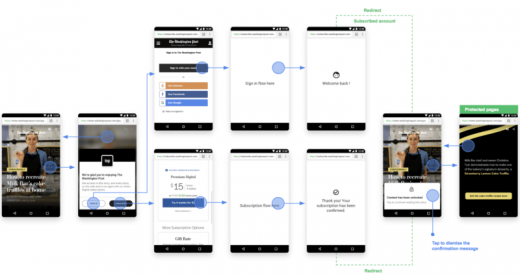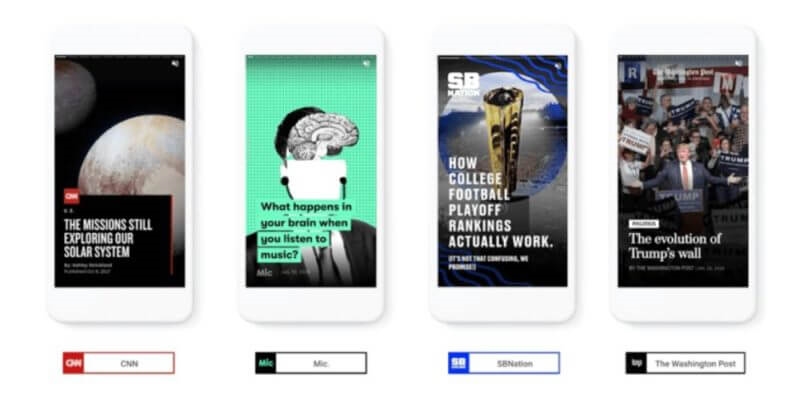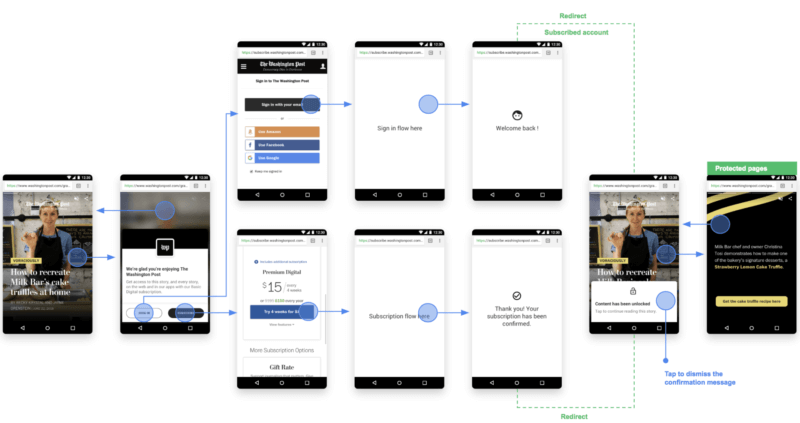Google releases AMP Stories v1.0 with new features, including an ads beta for DFP users
AMP Stories is now available to all developers. DFP users can inquire about participating in the ads beta.
Following on the introduction of AMP Stories for publishers in February, the AMP team has announced several updates to AMP Stories, including monetization capabilities. Version 1.0 of AMP Stories is now available to all developers, no whitelisting needed.
AMP stories are standalone compilations of pages with AMP and HTML layers of elements such as media, analytics, text and more. In the vein of Snapchat and Instagram stories, AMP stories provide publishers with rich media storytelling options designed for the mobile web (though AMP Stories also works on desktop).
There is a new beta available to publishers using DoubleClick for Publishers (soon to be called Google Ad Manager) to serve ads within AMP stories. Publishers interested in the beta can let the AMP team know via Github (registration required). Below is an example of a Google Home ad showing within a story. You’ll notice there is a “Shop Now” call-to-action button in the ad. (As much as Google touts that AMP is open-source, opening this beta exclusively to users of its own ad-serving tech is more fodder for critics who say Google favors its own products, is not-so-subtly taking ownership of AMP and is pushing AMP to be the mobile web standard.)
New metadata attributes are used to show previews of stories across the AMP Stories ecosystem, such as preview links in the bookend (last page) of related stories. A list of required and optional metadata attributes can be found here. Additionally, there are new bookend capabilities that make it possible to include call-to-action links, text box and portrait and landscape-oriented cards.
Google AMP Stories Lead Engineer Jon Newmuis wrote in a blog post last week announcing the release of AMP Stories v1.0 that thousands of AMP stories have been created by publishers since February. Future AMP Stories efforts in development include paywalls, responsive scaling and additional clickable elements. Newmuis posted a mockup of how the paywall functionality might work on Github, shown below. Paywall and subscription functionality is already supported in standard AMP-enabled pages.
[Appeared on Search Engine Land.]
Marketing Land – Internet Marketing News, Strategies & Tips
(24)





